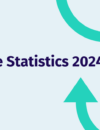
Since 1982, the 22nd of September has been set aside to mark American Business Women’s Day. This is a chance to acknowledge the contribution of the 75 million American working women (almost half the total labour force), and the 12 million women-owned businesses.
These women-owned firms employ almost 9 million people, and generate over $2 trillion in sales annually – nearly 10% of employment and 5% of sales respectively. Of those businesses, more than 5 million are majority owned by women of colour – employing over 2 million people and making over $360 billion a year in revenue.
These are incredible achievements which speak directly to the ingenuity and tenacity of working women in the United States, aided in no small part by the pioneering efforts of the American Business Women’s Association. Founded in 1949, the ABWA was set up to reflect the “tremendous gains in business knowledge” and to provide a platform for “women who are seeking, and deserve, equal business opportunities” – in the words of ABWA co-founder Hilary Bufton Jr.
Since then, women have gone on to found and run some of the most successful enterprises in the world, including Cisco, Flickr, BET and The Body Shop, and women are increasingly at the helm of the world’s most powerful companies – YouTube, General Motors, UPS, and GlaxoSmithKline to name just a few.
Female-owned businesses are hardly a new phenomenon. Both Elizabeth Arden and Estée Lauder founded their eponymous cosmetics empires in the first half of the 20th-century, and went on to become some of the most successful and influential businesswomen in history. But persistent discriminatory attitudes and a lack of institutional support means that more often that not, these incredible success stories are the exception that proves the rule.

It is only in recent history that the proper level of help and, crucially, financing has become available to women entrepreneurs – whose prevalence has increased over 110% in the past 20 years.
It is not only in America where strident change is taking place. In the UK, women have been a vital part of the workforce for hundreds of years, but a surge in the number of women business owners has drastically closed the “enterprise gap” over the last decade. Attracting more venture capital than any other European country, the UK is resolutely the startup capital of the continent: over 1100 new businesses are founded every single day.
And yet in spite of all this ostensibly available investment and opportunity, only 1 in 3 UK entrepreneurs are women: a gender gap equivalent to 1.1 million missing businesses. A little over 5% of women in the UK have their own business, compared to 10% in the US and 15% in Canada. And in terms of the balance of male and female entrepreneurs, the UK lags behind not only the US and Canada, but the Netherlands, Spain, Australia, Israel, Sweden and Greece.
It is clear that we have come a long way but we cannot afford to be complacent, especially when we see how the UK fares against the rest of the world. Government efforts to foster female entrepreneurial talent have pled to improve advice and support, and offer tax-free childcare initiatives. But what would-be women entrepreneurs really need is access to investment.
A 2018 report by the London Business School found that two-thirds of women believed that investors and banks did not take them as seriously as their male counterparts – a feeling that is sadly reflected in the numbers. An emerging network of organisations offering grants and loans to businesswomen is now working to close the gap, and democratise access to startup capital. Earlier this year, RBS, under the leadership of Alison Rose, announced a new £1 billion female entrepreneurship fund, and laid out plans to create 50,000 more female-led businesses by 2023. This is the largest women-focused funding intervention by a UK lender in history, and hopefully is a sign of bigger change to come.
There are many reasons to be optimistic about the increased autonomy of women in the workforce. Representation is rising across the board, and in the boardroom. It is important that we remember that these achievements are hard won and that, with looming challenges like Brexit and Coronavirus, the growing position of women in business is far from secure. Business Women’s Day is not only a time for reflecting on the victories of the past. It is a chance to focus on bettering outcomes in the present.
Please find a number of organisations offering grants and loans to women-led businesses and female entrepreneurs listed below:
Women Who Tech: Startup Challenges and Grants
Global Fund for Women (excluding US)





